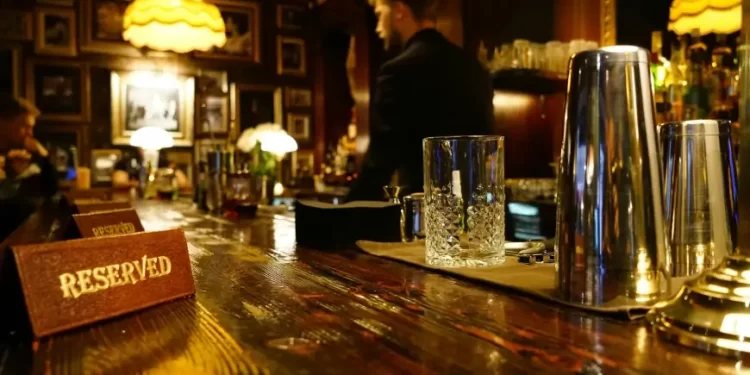
In a survey of full-service restaurant diners, almost 2 in 5 had been conscious that third-party web sites charged for reservations, and virtually 15% mentioned they’d been charged themselves.
When the pandemic ended, customers went out of their technique to fulfill their pent-up wishes to dine out and journey. Demand for reservations at scorching eating places grew, making them even tougher to get. Consequently, they grew to become a commodity to be resold, and 5 years later these third-party reservations stay troubling for operators and customers.
Expertise has made it simpler for people and firms to scoop up reservations from restaurant web sites or restaurant-approved reservation websites, like they do with high-demand live performance tickets. The brokers then promote the reservations on unauthorized on-line resale websites and social media.
“The extra know-how helps us discover effectivity in our every day lives, the extra it additionally creates new methods for individuals to sport the system,” says Mike Whatley, the Nationwide Restaurant Affiliation’s vice chairman of State Affairs and Grassroots Advocacy. “We noticed one thing comparable within the early days of third-party supply, when some firms had been placing eating places on their platforms with out contracts or permission from the restaurant. It created chaos for the eating places and customers. To resolve this, many states took steps to manage the connection between the operator and the supply firms to offer management again to the eating places. We consider the identical type of relationship between reservation resale websites and restaurant operators needs to be required right here.”
Coping with no-shows and managing expectations
This disconnect within the reservation course of is inflicting operational challenges for restaurant operators, like expensive no-shows. It’s additionally requiring staffers to not solely handle the expectations of consumers who buy the reservations – generally paying a whole lot of {dollars} – however the potential harm to a restaurant’s model and status as properly. As well as, they’re making eating out at sure eating places artificially dearer, and reservations virtually not possible to acquire.
“These third-party reservation sellers contribute nothing to the eating expertise,” says Steve Woodruff, normal supervisor of Commander’s Palace in New Orleans. “They don’t make the meals higher, the service extra seamless, or the environment extra pleasant. They merely make it dearer and irritating—for everybody.”
As this rising black market proliferates throughout the nation, clients are rising pissed off with the follow, and restaurant operators are involved about their lack of management over buyer connections. To deal with this, state governments are working with the restaurant trade to create a regulatory framework to repair the system and provides again management of reservations to eating places.
In a survey of diners who’d lately visited a full-service restaurant, almost 2 in 5 of them had been conscious that third-party web sites had charged diners for reservations. The truth is, virtually 15% mentioned they’d been charged for reservations.
In keeping with the analysis, greater than two-thirds of customers mentioned unauthorized third-party restaurant reservations are dangerous and are apprehensive concerning the impacts unauthorized reservation firms are having on eating places and their clients. One other 7 in 10 mentioned they assist laws to forestall the unauthorized sale of reservations of their cities.
Taking again management
“What these third-party reservation scalpers are doing just isn’t serving to eating places,” says Rob Mosher, co-owner of Monteverde in Chicago. “It’s a wholly separate enterprise that exploits the system with out contributing to the expertise in any means. Eating places are constructed on hospitality, on making individuals really feel welcome, and on guaranteeing they’ve an unimaginable expertise from the second they stroll in. When third-party scalpers and bots scoop up reservations, it fully negates that. Friends go browsing, see no availability, and assume they’re shut out. We would like individuals—whether or not they’re locals or guests—to have the ability to e-book a desk simply, with out further charges, with out insider data, and with out leaping by means of hoops simply to take pleasure in a meal with us.”
In 2024, the state of New York was first to manage the connection, passing the Restaurant Reservation Anti-Piracy Act, which requires third-party on-line reservation websites to enter right into a written settlement with eating places earlier than having the ability to record reservations. Florida, Hawaii and Nevada have handed comparable laws, whereas payments in Louisiana and Illinois await their governors’ signatures. The California and New Jersey legislatures are nonetheless contemplating provisions.
Whatley says he’s inspired by the variety of legislative wins this yr. “Clients and eating places need the system fastened in order that it’s honest and works for everybody.”







